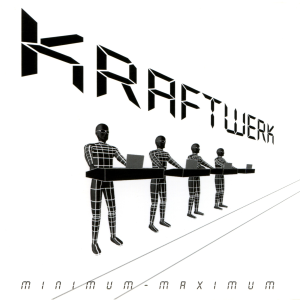f00f/eris
Here to follow content related to Star Trek, Linux, open-source software, and anything else I like that happens to have a substantial Lemmy community for it.
Main fediverse account: @f00fc7c8@woem.space
- 2 Posts
- 33 Comments

 3·6 months ago
3·6 months agoI’d say they all offer different types of customization. It’s less a matter of how much you can do, and more a matter of what you want to do and how much time you’re willing to spend working on it. KDE is for people who want to customize their desktop, and want it to be easy to do so. GNOME is for people who just want something that works, but it still offers a lot of customization, it’s just not as well-supported (their philosophy is “if theming breaks an app, it’s not our fault”).
KDE doesn’t support full CSS customization on its own, but there are theming engines like Kvantum and QtCurve that address the limitations that arise from this. I’d say it’s on almost equal footing with GNOME in that regard, since both GTK4+libadwaita and Qt6+KF6 are designed for color scheme customization, but require various workarounds and obscure settings for anything more than that. If anything the workarounds are easier in KDE.
Similarly, KDE supports layout customization through widgets and graphical menus. GNOME also supports layout customization, but through extensions instead.
And then you can do all of the above and more if you use a window manager, or an LXDE/LXQt-style desktop that lets you disable or replace all its components in settings - just mix and match components like panels, file managers, display managers, polkit agents, etc. You can basically build your own DE that way, and it doesn’t get much more customizable than that. But maybe you don’t want to spend your time choosing every component of your custom DE. That’s what something like KDE is for.

 11·1 year ago
11·1 year agoYeah, only thing I can think of is the few banking apps that don’t have web versions.
I was lucky enough to have all my banking and 2FA apps work perfectly on GrapheneOS. The only app that gave me a significant amount of trouble was iClicker, which my school uses for attendance. That was fixed by enabling Google Play location services, and there was a (fairly expensive) alternative anyway.
I did have to buy a new phone to use Graphene, because I got my previous one as part of a carrier’s cell plan, and it had a locked BIOS. Though I think the purchase was worth it, and just moving my SIM card from one device to another was enough to get it working.
of course not!

 5·1 year ago
5·1 year agoHandbrake will probably still work if you compile it from source, but it seems like upstream isn’t paying much attention to libdvdcss support.
The version in Debian’s repo still works for me, anyway.
Yeah, it’s fake, and as other commenters have pointed out, it’s also inaccurate to how the GPLv2 works. It was not meant to convince anyone.

 121·1 year ago
121·1 year agoI came across a bunch of those recently, which is how I came up with the idea for this, as a parody :)
Internet horror is disappointingly un-creative. I have no idea why the weakest works (sonic.exe, anti-piracy, kill screens) always end up becoming huge trends, or why so few people try to put a significant twist on said trends.

 762·1 year ago
762·1 year agoTons of companies are shipping Linux without giving users access to the source code, it’s just that only one has the term “Tivoization” named after it.

 321·1 year ago
321·1 year agoThe website claims that sponsors have no direct influence on the project (“board seats are not for sale”). The reality is that no project of sufficient scale to fully implement web standards can survive without a significant amount of funding.

 1·1 year ago
1·1 year agoI’m using an AMD Ryzen iGPU on Wayland. I switched to Testing because the support already existed, but the kernel and mesa versions in stable were buggy for my particular GPU and I didn’t want to make a FrankenDebian.

 10·1 year ago
10·1 year agoDepends on your desktop environment. Look for an “autostart” or “startup applications” setting. If you’re on KDE, this could also be caused by “Restore previous session” under Settings -> Startup and Shutdown -> Desktop Session.

 30·1 year ago
30·1 year agoFor me, the outdated packages in stable have actually gotten better over time, as DEs get closer to a place where I don’t need any major updates to enjoy using them, Flatpaks become more readily available, and on a subjective level, I get less and less invested in current Linux news. Before Debian became my “forever distro”, I’d hopped to it a few times, and often found myself wishing for a newer piece of software that wasn’t in backports or flathub, or simply being bored with how stable it is, but that’s been happening less and less. And I feel like Debian 12 in particular left me with software that I wouldn’t mind being stuck with for two years.
I’ve gotten warnings to upgrade my browser with Debian’s Firefox ESR, but they never affected a website’s usability in a way that a newer version would fix, and they do provide security updates and new ESR series when they come out; even if you must have the newest Firefox, you can use the Flatpak.
Additionally, I’m currently on testing in order to get better support for my GPU, and each time I’ve tried to use it, it’s worked for me for a longer time than the last as I get better at resolving or avoiding broken packages. If you do experience issues like the one you described, and can replicate them, and no one else has already reported them, you should report them to Debian’s bug tracker. The whole point of Testing is to find and squash all the critical bugs before the next stable releases.

 7·1 year ago
7·1 year agoI always keep close track of these contests, it’s fun to take a look at all the different concepts. Though IIRC only Juliette Taka (who designed the themes for 8, 9, and 11) even submitted a theme last time. She’s great, and Emerald is great, but I hope this post gets someone even better involved with the artwork.

 9·1 year ago
9·1 year agoDebian! It’s stable, elegant, and doesn’t impede customization. I distro-hopped a lot over the years - some that I ended up disliking included KaOS (severely limited software repository), Clear Linux (only way to get ffmpeg was to compile it from source) and Fedora (very slow); most I liked, and just decided to move on at some point. But I kept coming back to Debian, and eventually got to a point where instead of trying a different distro when Debian broke, I would just reinstall Debian.
I’d be interested to try VanillaOS or another “immutable” distro at some point in the future. See if they’ve matured enough for my day-to-day use.

 5·1 year ago
5·1 year agoI was quite satisfied with Debian Stable for a few years on at least two different laptops, and felt I had found my “forever distro”, until I got a Framework laptop whose AMD graphics were quite buggy on it. In order to get rid of all the issues, I had to upgrade to Testing and install a mainline Liquorix kernel (and along the way, I briefly made a Frankendebian and fiddled with kernel parameters). While my years of experience with Debian and derivatives has prevented me from breaking anything, I do wish I didn’t have to use all of this beta-quality software just to prevent games from freezing and crashing constantly, just because I bought “new” (about a year old) hardware.
I still want to keep Debian, because I’ve found nothing else that works quite as elegantly or stably, but I’m hoping to find ways to get the performance I need without Liquorix, and if something forces me to reinstall between now and the time Debian Trixie becomes stable, I’ll probably give Fedora or KDE Neon another try.

 1·1 year ago
1·1 year agoDebian can still work, but you’d have better chances with legacy LXDE, or starting with no DE and installing IceWM.
Q4OS Trinity, antiX, and Damn Small Linux are all Debian derivatives known for being able to run on very old systems, and they’re among the most lightweight distros I know that are still functional for most purposes.

 7·1 year ago
7·1 year agoNot sure why, but a lot of other distros did something just like this in the past (see the comments about WUBI) and no longer do. Q4OS still has a .exe installer though.

 4·1 year ago
4·1 year agoI’ve had great experience with QKSMS on GrapheneOS. Thanks for directing me to the fork, I’m switching to it right away.

 8·1 year ago
8·1 year agoI have to borrow a school laptop just to do proctored exams, because their “lockdown browser” doesn’t support Linux, and even if it did, it seems to do some things in kernel mode, so I don’t want it on my system.
Surprisingly, most classes at my university are entirely FOSS based, aside from that one piece of software, an obscure scientific program that only one assignment used, and MATLAB (which is easily replaced by GNU Octave.)

Just as long as it isn’t a .rar.